Groundbreaking Workshop on AI and Technology-Facilitated Gender-Based Violence at AWiM24
Trending
Sunday June 1, 2025
Trending
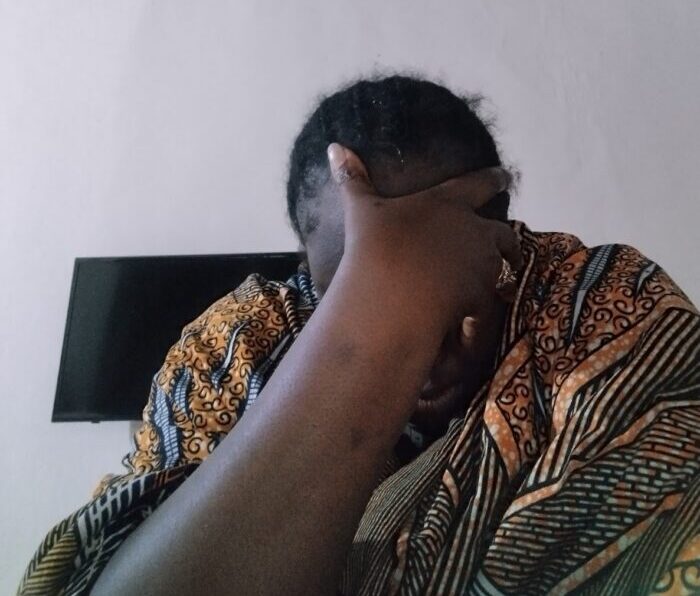
Oluchi, a 40-year-old housewife, is married to a man who beats her at the slightest perceived or actual provocation. When she finally summoned up the courage to report her assault to the police at the Ejigbo Police Station, she was allegedly asked to provide eyewitnesses to back up her story by the Divisional Police Officer (DPO) despite her visible injuries.
The alleged perpetrator was granted bail at Ejigbo Police Station by the Investigating Police Officer (IPO), who also serves as the Officer in Charge of Human Rights.
A study recently commissioned by the Ministry of Women’s Affairs and Social Development and the United Nations Population Fund (UNFPA) Nigeria found that 28% of Nigerian women aged 25-29 have experienced some form of physical violence since age 15
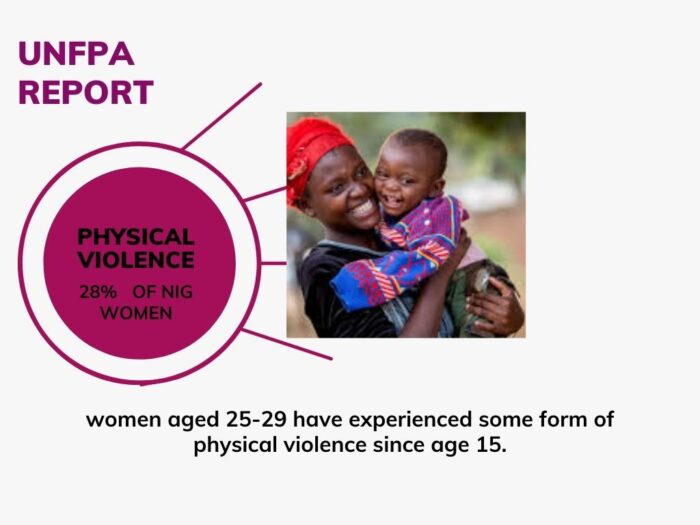
In a conversation with the Lagos State Police Command, SP Benjamin Hundeyin said each division has a family support unit (FSU), as well as a gender unit at the police command in Ikeja and the state investigative department (SCID) in Yaba, Lagos, that deal with domestic violence, sexual abuse, and gender issues.

SP Hundeyin added that any police officer who is found to have engaged in unprofessional behaviour anywhere, whether during an investigation into domestic and sexual violence cases or not, is dealt with by existing Police procedures.
“We do not spare such officers unless we are unaware that such an incident occurred. That officer clearly will be dealt with.”
From the above, it seems that the Family Support Unit in various divisions and the gender unit at the command are failing in their responsibilities. Many Survivors, particularly indigent victims, and their family members, who have gone to the FSU in the divisions and the Gender Unit to seek justice, have come to regret that decision.
To fully understand the gaps in the Nigerian Justice System, it is imperative to investigate how it is done in other African Countries.
In Kenya for instance, more than 40% of women have experienced physical or sexual violence from an intimate partner in their lifetime. This is according to the Kenya Demographic and Health Survey (KDHS). Approximately one in every four girls in the country marry at an early age, and approximately one in every five are subjected to female genital mutilation. Despite local and international legislation outlawing gender-based violence, enforcement is patchy, and the rate of gender-based violence, including intimate partner violence, against girls and women persists in many Kenyan communities
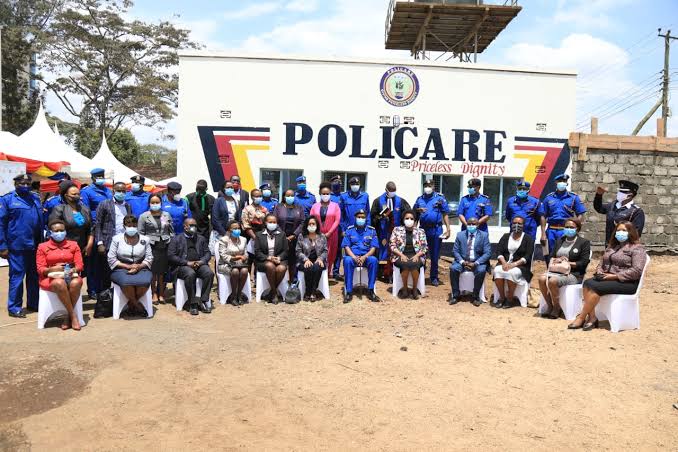
In a Zoom interview with Janet Anyango Deputy Executive Director of FIDA Kenya, she highlighted the tedious process in accessing justice. Anyango further said victim shaming discourages survivors from seeking justice.
“In Kenya there is a national guideline on management of sexual and gender-based violence in Kenya that talks about a very comprehensive management of cases. It talks about humanitarian response, the legal response, the medical response, and the need for psychosocial response. So, you find that in as much as our system looks at having a one-stop shop for gender-based violence with the Policares, we are yet to really equip them.” Anyango said
Anyango reiterated that most of the gender desks are ill-equipped, and it makes it difficult for them to conduct comprehensive investigations. She said that in Kenya, police officers will say they do not have fuel in the vehicles to visit crime scenes or incident scenes and this really compromises the quality of cases.
“Also, our sexual offences place the burden of proof on the survivor. Survivors have to that she was raped or defiled which make the whole experience quite traumatizing and yet the government is yet to set up very comprehensive trauma counseling for the survivors so most of them will get very exhausted through the process and they will tell you this is not what healing looks like”. Anyango said:
On how these gaps can be tackled, Anyango submitted that the Kenyan government can improve on ‘’survivor-centeredness’’ by equipping the Police gender desks.
On the other hand, South Africa has one of the highest rates of violence against women and girls in the world. This is according to the World Health Organisation.
Official statistics show that one in every five women in relationships has experienced physical violence from a partner. In contrast, the provincial Family Violence, Child Protection and Sexual Offences (FCS) unit houses the specialized Serial and Electronic Crime Investigations (SECI) unit of the South African Police Service. This unit looks into cases involving child pornography and serial rapists.
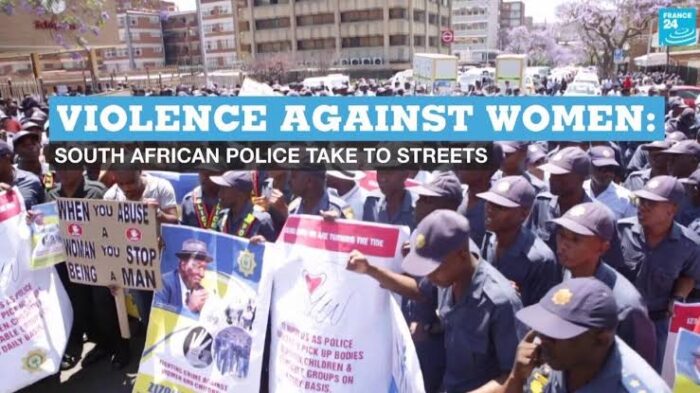
The government of South Africa, like that of Nigeria, has set up 134 help desks in operation and the goal is to have a GBV (Gender Based Violence) desk in all police stations countrywide yet in Nigeria we still see huge gaps.
Although Oluchi’s case was subsequently transferred to the Lagos State Police Command Gender Unit, she claimed the situation deteriorated further. She alleged that when she went to the gender unit, the officers did not ask her husband to write and sign an undertaking but instead, he was asked to go.
Oluchi alleged that ‘’The-Officer– in Charge of the Gender Unit stated that my decision to leave the marriage for my safety was overly harsh. She said I should think about my children. How can I be running for my life while the police, who are supposed to help me, said my decision was too harsh?”
Oluchi narrated that for the past 18 years, she had been subjected to constant abuse by her husband. She said the latest violence happened in April 2024 and was so intense that she had to contact a Non-Governmental Organisation and the police.
However, after her case was transferred from Ejigbo to the Gender Unit Ikeja because of an alleged compromised investigation process. Oluchi stopped picking up calls. She said involving police in her domestic violence caused more problems for her. She eventually became hostile, and unresponsive.
Further investigation revealed she had reconciled with her husband because of family pressure.
Reacting to the alleged unprofessional manner the Gender Unit handled the domestic violence case involving Oluchi, the co-founder of Advocates for Children and Vulnerable Persons Network (ACVPN), Mr Ebenezer Omejalile said it was an unacceptable trajectory.
According to him, it clearly showed that the position of the officer-in-charge was biased.
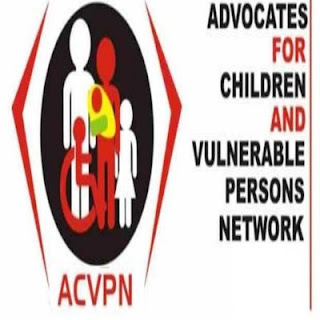
“If the OC Gender is truly an experienced Gender Unit Officer, she is expected to apply for or advise on Civil Protection Orders for the victim who alleged she was subjected to physical violence for years during their union, with evidence available”.Omejalile said
“The Violence Against Persons PROHIBITION ACT VAPP 2015: clearly stated in Section 28(1) that aggrieved persons can apply for a Protection Order applicable in any part of Nigeria if granted.
“Can we say the OC Gender applied this process? The answer is capital No! This is because she does not have the requisite knowledge to manage such scenarios that require common sense.
“The same applies to the Lagos State Domestic Violence Law which states that any person who is allegedly subjected to any form of domestic violence including children in the care of the victim can as well apply for a Protection Order.
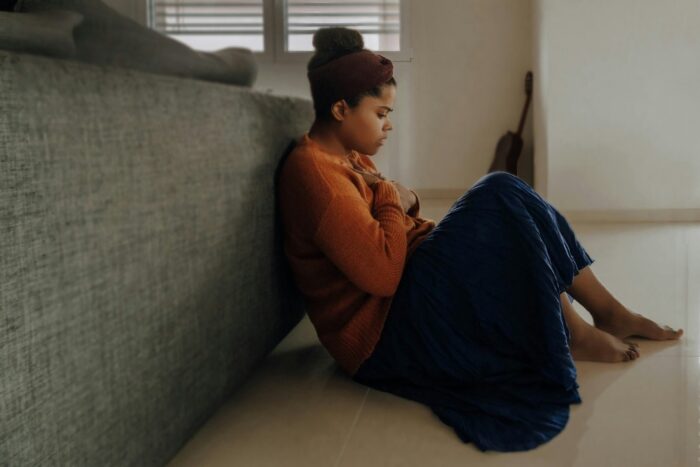
Another Survivor who had a similar experience with Oluchi, is Mrs. Anukwa, a mother of two children who discovered that her husband was sexually abusing their daughter.
Six years after reporting the case of defilement to the Gender Unit of the Lagos State Police Command, she is still fighting for justice. The case dragged on for months at the Gender Unit Ikeja Command till then Commissioner of Police Lagos State, CP Hakeem Odumosu was forced to transfer the case from the Gender Unit to the State Criminal Investigative Department, SCID, Yaba for a more detailed investigation.
When the incident occurred, Anukwa said she went to the Lagos State Domestic and Sexual Violence Agency, where she was directed to the Commissioner of Police, along with two written notes.
The first note was addressed to the Commissioner of Police, and the second to Mirabel Medical Centre. According to Anukwa, “When we got to the then-Commissioner of Police, CP Hakeem Odumosu, he took the note and directed us to the Gender Unit.”When we arrived at the Gender Unit, Inspector Rebecca was assigned to the case.”
However, during the interrogation by the IPO, Anukwa said she was asked questions concerning her husband which she innocently responded to. “The IPO inquired about his financial capacity and whether he lived in his residence, to which I replied affirmatively. She then asked me to sit outside after collecting his phone number and other information from me,” Anukwa added.
Mrs Anukwa continued, “When the IPO asked me to write down my statement, the Assistant Commissioner of Police Admin instructed her to take a recorded statement from the victim because she is still a minor. That her statement should be recorded because of her age.”
“She took my statement and said she would not record my daughter’s statement that day.
She explained that her daughter was only able to sign her name, her age, and the name of her school and that her father was molesting her on a piece of paper. She further narrated that rather than record her statement, the IPO, Rebecca filed the paper where her daughter scribbled a few words.
She said a few days later, the IPO called to inform her that her husband, the suspect, had been arrested and then subsequently released because the suspect could not be kept in Police custody but would be taken to the magistrate court.
“I inquired, but she informed me that the investigation would be completed before arraignment. What about the exhibit I have and my daughter’s statement? What about her medical report? She said we have it. She said the medical report had already nailed him.”
According to Anukwa, instead of allowing the survivor’s mother to take her daughter to Mirabel Centre, which is close to the command for medical tests, the IPO referred them to another centre in Yaba. Anukwa said that they wanted to go to Mirabel Center for the victim’s medical tests when the IPO told them they no longer use the centre and collected the Mirabel Centre referral form from her. She alleged that the IPO referred her to another centre in Yaba, where they conducted the necessary medical tests. After which they sent the result to the police.
When asked to comment on the allegations, the Lagos State Police Spokesperson, SP Hundeyin explained that the case was being investigated.
There are allegations that some IPOs hide under the cover of carrying out investigations, take advantage of the survivors and extort them. Mrs Anukwa said she gave N19,000 to the IPO for fuel, and photocopies of documents.
She alleged that the IPO had initially asked her if she could give them three million naira as her husband was planning to provide the said amount.
“I told her I could not afford it, and that I had left the house without anything to keep my children safe. I beg her to help because of the young victim. She told me not to worry because she is a woman and a mother, and I foolishly believed her.”
The survivor’s mother was shocked to find out during a magistrate court hearing that the details in the charge sheet were different from what she had written in her statement.
After the magistrate asked if she had a copy of the charge sheet, the IPO, Rebecca handed her one. She noticed all the discrepancies and omissions and quickly raised her hand.
When the Magistrate asked why her hand was raised, she told the IPO who approached her that what was on the charge sheet differed from her written statement. The IPO assured her she had noticed the discrepancies and would correct them.
She eventually discovered that the medical report of her daughter, who had been sexually abused, had not been included by the investigating officer, or the IPO, in charge of the case file.
“The defendant’s lawyer stated that there is no medical report, so how can we be certain that what this woman said is true? You cannot charge someone with defilement, rape, or sexual abuse without a medical report.”
The suspect was therefore granted bail while the medical report was being processed.
When they left the court, the IPO told Mrs Anukwa that the suspect’s family had bribed them at the court.
“When I went to the medical centre they told me they had sent the medical report to the police. It was sent to her more than a week before the suspect was arrested, and when went to the magistrate court they told me to wait for DPP advice’’
The Department of Public Prosecution was meant to revisit the case for a thorough investigation if it was suspected that the police did not conduct one, which is the standard procedure.
In an acknowledged and stamped petition which was received by the Lagos State police Command on January 06, 2020, which was obtained in the course of this investigation, it was discovered that based on lapses in the investigation process the Department of Public Prosecution asked Mrs Anukwa to resubmit copies of these evidences to Nigerian police to enable all and sundry in this case to be on the same page so that the police will reverse report earlier sent to the DPP.
The petition titled: submission of further evidence on the case between COP vs Anukwa CR/ No: 140/2019 (the IPO in charge of this case is Madam Rebecca of the gender unit of the same command Ikeja)
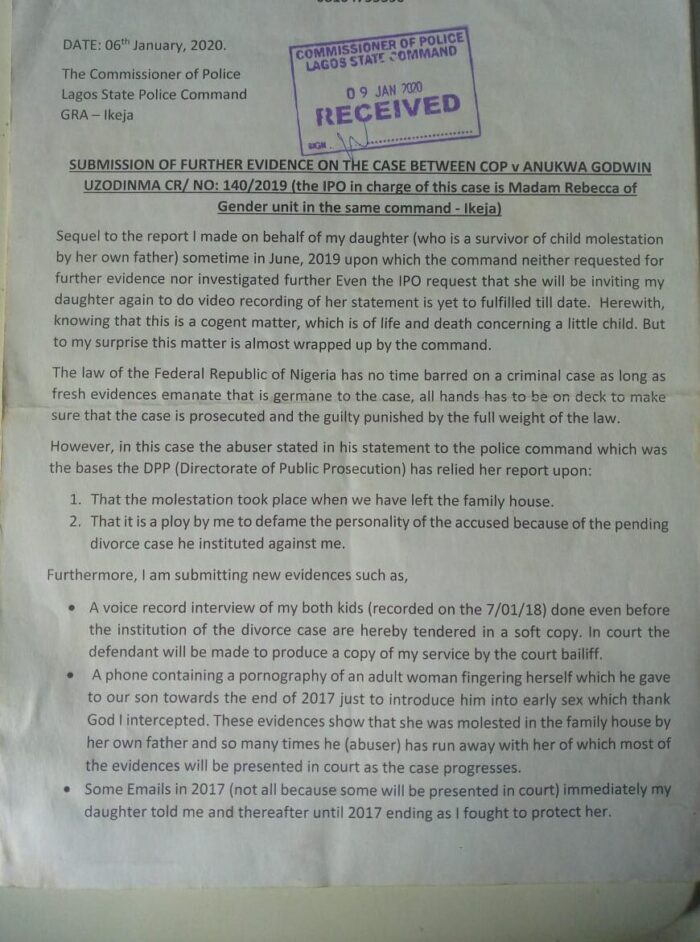
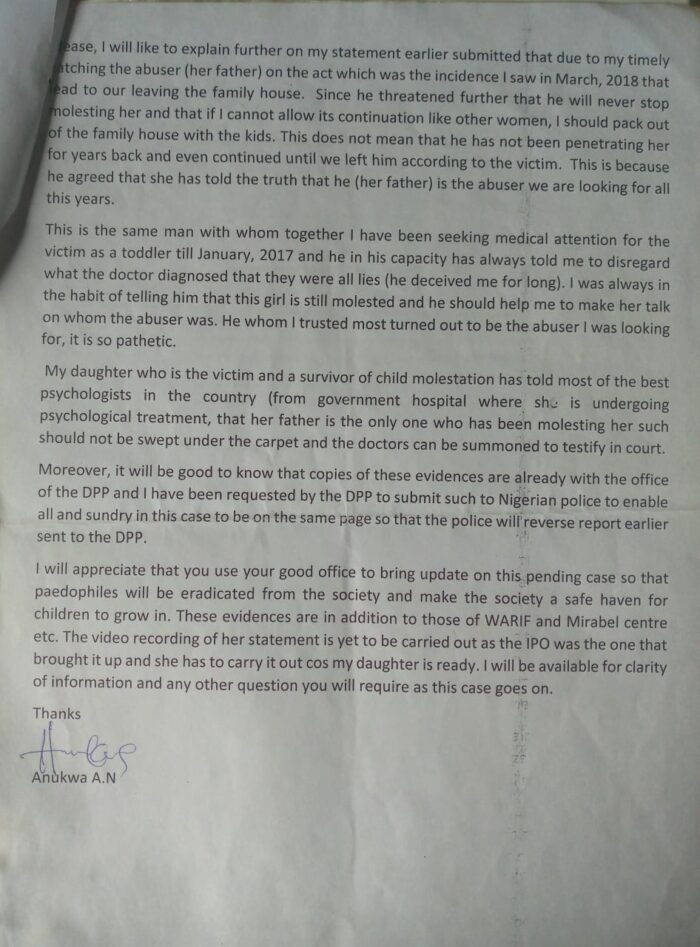
However, according to the allegations, there was no evidence, the victim did not provide a statement, the victim’s mother was the only statement included in the case file, no investigation was conducted, and no exhibit was presented.
According to the victim’s mother, “It took several written petitions to the then Commissioner of Police, CP Hakeem Odumosu and to the Department of Public Prosecution DPP, demanding a thorough investigation.”
She alleged that when the Department of Public Prosecution DPP responded that the Police should reopen the investigation, the same IPO refused, and she filed it, preventing her boss from seeing it.”
Determined to get justice, Mrs Anukwa claimed that she went to the Gender Department for over one year and yet nothing happened after the directive from the Department of Public Prosecution DPP.
She said when the file came out, to reopen the investigation, it was discovered that all the officers in that department were allegedly compromised as they already signed against the case.
Infuriated at the development, the CP transferred the case to the state investigative department, Panti. When it got there, they called the IPO to give them details of the case, but she vehemently refused as though she was above the law. The Assistant Commissioner of Police gave her instructions, but it was not obeyed.
Despite claims by SP Hundeyin that any police officer found to have engaged in unprofessional behaviour anywhere would be dealt with by existing police procedures, Rebecca, the IPO who charged someone with defilement without attaching a medical report, was reportedly transferred to the CP Monitoring Unit, at the State Police Command Ikeja.
Human Rights Lawyer, Barrister Oluwatoyin Ndidi Taiwo-Ojo, said it is disheartening when women and girls are sexually abused, and it is even more painful when survivors who come forward to seek justice are frustrated.
According to her, ” One way that law enforcement agencies frustrate survivors is by shaming and stigmatising them; most of the time, they come into the police station and instead of being heard, they are mocked. If it is a domestic abuse survivor, you will hear things like, you women have a sharp mouth, you are not listening to your husband, that is why,” or asking a rape victim, did you enjoy it? did you not open your legs? Why didn’t you shout?”
Taiwo-Ojo noted that the consequences are far-reaching, including discouraging survivors from seeking justice. “It empowers and enables perpetrators to continue committing these crimes because they are aware there will be no consequences for their actions. It also prevents us from knowing the exact prevalence of these crimes because if they are reported, we will determine how often they occur.
Another implication is that because we cannot verify the data, we cannot attract international funders who want to help vulnerable people establish institutions and systems to protect them. It will also make us appear less serious in the global community because we lack the willpower to combat these crimes” she said
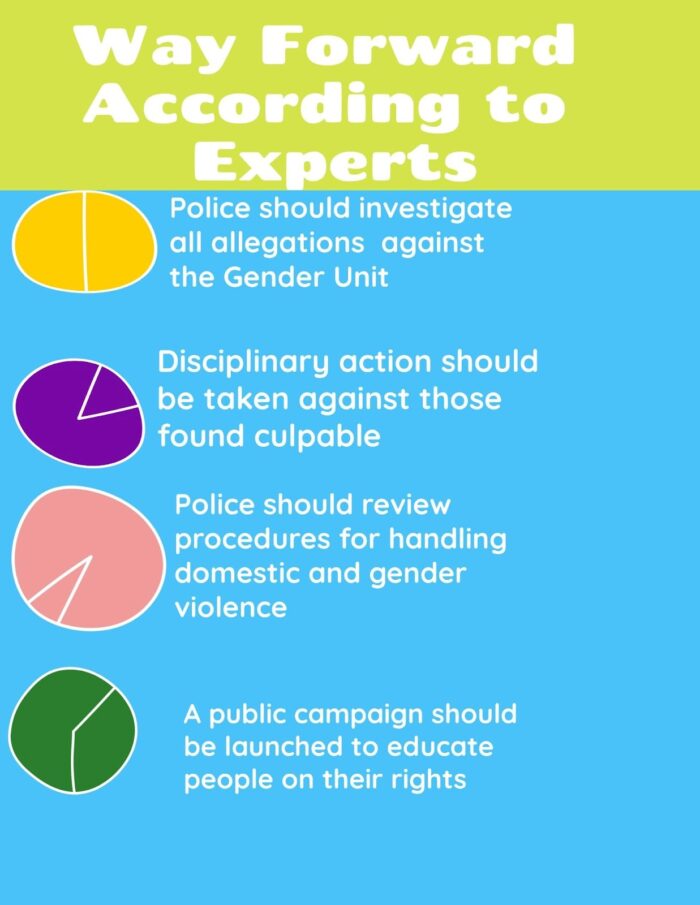
Editor’s Note: The names of the survivors have been altered in this report for their security.
This story is part of the African Women in Media (AWiM) ‘Reporting Violence Against Women and Girls’ project,’ supported by the Wole Soyinka Centre for Investigative Journalism
We’re not gonna spam. We’ll try at least.

Copyright 2020. African Women In Media
Copyright 2020. African Women In Media
Recent Comments